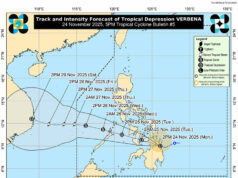Kaspersky says ‘total security’ needed vs digital scams in PHL

By Arjay L. Balinbin, Senior Reporter
INTERNET security company Kaspersky formally introduced in the Philippines on Tuesday a protection package that promises a “complete, family-oriented defense” against cyberthreats.
“Practicing good cyber hygiene includes considering dependable software protection even before an unfortunate event takes place and not after encountering an incident,” Yeo Siang Tiong, general manager for Southeast Asia at Kaspersky, said during a virtual briefing.
The company said its “Kaspersky Total Security” (KTS) is bundled with a virtual private network, or VPN, which assures that customers’ online actions are not logged and hackers are prevented from reading e-mails, photos and bank details.
“It has a password manager that generates strong passwords for you and will help you track multiple passwords which are all secured in a private vault, away from the prying eyes of cybercriminals,” the company noted.
It also has safe money, anti-hacking, malicious link detector, and anti-malware features.
Citing the findings of its recent survey on what Filipinos do after falling victim to a digital fraud, Kaspersky said 65% would immediately change the passwords on their bank or digital wallet accounts and apps.
“Half (51%) of surveyed Filipino victims of online scammers and fraudsters admitted that informing their family and friends of what happened was what they did before anything else,” the company noted.
At the same time, 43% said calling their banks to report the incident would be their immediate action.
More than half or 54% of the Filipino respondents said they were confident that electronic banking and e-wallet platforms “are very secure that they use these services at least several times a week.”
Most of them regularly use digital payments for transferring money to family and friends, paying for utilities, and shopping online.
“We can glean from these data that Filipinos draw strength from their family during a crisis particularly where there’s potential loss of money. This may explain why they make calls to their families and friends before anything else rather than swiftly report their circumstance to the proper authorities,” Mr. Yeo said.



